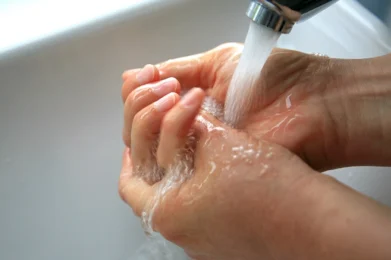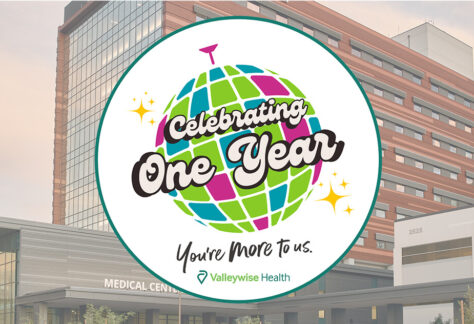In This Article:
- A new national study by Kids Count, an organization that collects comprehensive data on the well-being of children, placed Arizona at 42nd overall and in the bottom half for all four categories measured.
- For kids’ health, Arizona rose five spots since 2020, improving from 33rd to 28th within a year.
- The other three categories showed declines which were largely related to insufficient school funding, poverty and family life — but Valleywise Health is striving to improve these statistics.
Keep in mind that this is not an end-all-be-all source, as multiple organizations conduct children’s health studies annually with various outcomes. However, it’s a good indicator of where our state falls short. Let’s explore the causes behind these low numbers and how Valleywise Health is working to improve them.
Kids’ Health
Health was the highest ranked among the evaluated categories. Arizona rose five spots from 2020, improving from 33rd to 28th within a year. The study measured a wide range of health indicators in children ages 0 to 17, including health status, doctors, obesity, infant death rates, medical insurance and more. Here are some of the highlights:
Children Without Health Insurance
- Nine percent of children in Arizona do not have health insurance, compared to the 6% national average.
Child and Teen Obesity Rates
- Among children ages 10 to 17, 25% were overweight or obese. The national average of children in the same age group is 31%.
Child and Teen Death Rates
- The child and teen death rate were 30 per 100,000 individuals, compared to the national average of 25 per 100,000 individuals.
As Maricopa County’s only “safety net” health care system, Valleywise Health prides itself on serving marginalized populations that may not otherwise receive the quality care they deserve. By providing expert services to all — regardless of race, gender or income — we aspire to help Arizona soon land a spot in the top half.
Education
In education, Arizona fell from 46th in 2020 to 47th in 2021. Here are some notable statistics from the measured areas:
4th Grade Reading Levels
- About 69% of fourth graders in Arizona were not proficient in reading, compared to the national average of 66% recorded as below proficient.
8th Grade Math Levels
- About 69% of eighth graders in Arizona were not proficient in math, compared to the national average of 67% recorded as below proficient.
4-Year Graduation Rates
- More than 22% of Arizona high schoolers do not graduate in four years, compared to 14% nationally.
This can be attributed to large class sizes, the lack of full-time kindergarten and a shortage of teachers. However, our state also receives the lowest state funding for education. Inadequate resources have been a problem in Arizona school systems for decades, and it will take an increased base per-pupil funding level to improve these numbers in the long term. Until then, Valleywise Health is making education a priority through our multiple Family Learning Centers across the Valley.
At our Family Learning Centers, families can enjoy a wide variety of learning resources, like books and computers, as well as free classes for art, music, fitness, parenting and more. We’re here to support you and give you the tools you need to educate yourself and your children.
Family and Community
Arizona’s ranking has consistently been 46th in this category since 2013. This can be attributed to the above-average figures for single-parent families, teen births and children living in concentrated areas for poverty.
Along with allowing families to learn, bond and grow together in our Family Learning Centers, the Valleywise Health Foundation has supported those in need through various monetary and volunteering efforts. And, since a subpar home life can lead to mental conditions like depression and anxiety, we offer integrated behavioral health services and youth-focused care to help children and teens overcome their struggles.
Economic Well-Being
Economically, Arizona moved up from 36th to 35th overall. Although this is not a high ranking, it is a large improvement from 2013, when we ranked 47th. We’ve made strides, but there is still much more to be done. Nineteen percent of children live in poverty in our state, compared to the 17% national average.
Economic struggles can also be a source of stress for children. Many kids see their parents struggling but are unable to help, which can lead to larger emotional problems down the road. To ease financial burdens, at least in terms of health care, Valleywise Health accepts almost all insurance, including AHCCCS, Medicare and Medicaid. We strive to make our services are affordable to all patients.
Although Arizona’s rankings weren’t ideal this year, Valleywise Health and many other like-minded organizations are actively fighting toward making improvements. Our mission is to provide exceptional care to every patient, every time — and with each young individual who confides in us for care, we’re helping create a healthier, more resilient Arizona.
Sources:
- https://datacenter.kidscount.org/rankings
- https://edlawcenter.org/news/archives/other-states/how-to-improve-arizona%E2%80%99s-worst-in-the-nation-school-funding-system.html
- https://www.tucsonweekly.com/TheRange/archives/2021/06/28/arizona-kids-health-schooling-fare-poorly-again-in-annual-report
- https://valleywisehealthfoundation.org/






